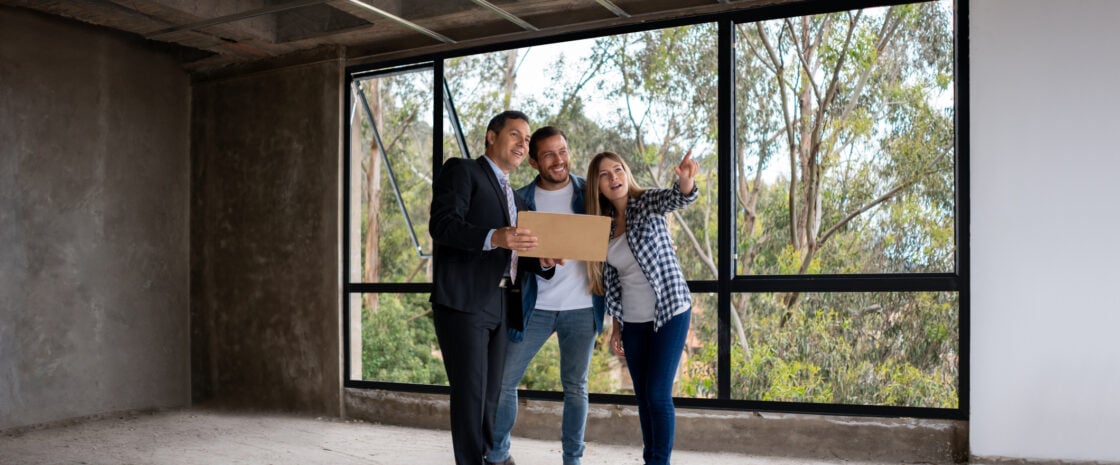Buying a pre-construction condo in a major Canadian city is often considered a smart investment. Put a deposit together, wait a few years; when your unit is ready to be occupied, its value will have appreciated with the rest of the market.
Flip it, rent it, live in it: either way, you’re already ahead.
Things aren’t so easy in 2024. A softening condo resale market, particularly in Ontario, gives buyers a legitimate reason to question today’s per square foot prices. Those who buy new are doing so at a time when projects seem to be going broke left and right.
Billion-dollar flops like Toronto’s mixed-use mega-tower The One garner media attention, but smaller housing developments are facing challenges, too. Almost a third of all builders polled by the Canadian Home Builders Association this spring said they have cancelled projects because of high interest rates.
Your options as a buyer can be painfully limited when a condo project fails. Here are a few ways to avoid tying your hopes to a home that might never get built.
Vet the builder…
It can be difficult to choose between pre-construction opportunities when the designs and marketing materials are all equally slick. Start your search by examining whose names are on the project.
Ensure that a builder is licensed and registered to operate in your province, Andrew Donnachie, manager of media and stakeholder relations at Tarion, said by email. (Tarion is the organization that administers Ontario’s new home warranty program.)
Checking your province’s database of registered builders can tell you about each one’s history, including whether they have any illegal building convictions, Donnachie says.
…and the developer
Jatin Gill, CEO and founder of Toronto-based real estate agency Platinum Condo Deals, encourages buyers to research developers online to find out whether they have subjected consumers to delays, cancellations or a shoddy final product.
“A quick search on any developer really tells you 95% of the story,” Gill says, adding that there is usually no shortage of online reviews to sift through when a developer doesn’t deliver.
Underpriced condo units should also be a red flag. Today’s steep building, administrative and land acquisition costs leave little room for significant discounts. Gill says completing a unit offered for less than $1,000 per square foot in the GTA, for example, is “not achievable.”
Some peace of mind can also be derived by confirming how your deposits will be held.
“Buyers should ensure that their deposits are held in trust by a reputable third party, such as a law firm, to safeguard their interests,” Kenneth Yim, managing partner for the condominium-focused Owncondo real estate team, said in a written statement.
If a project fails and your money is held in a trust, you should get it back. If it’s been paid directly to a developer who then goes broke, you could kiss some or all of it goodbye.
Opt for better-known companies
Let’s say you’ve found two condo units you really like and both developers pass the initial smell test. Condo A is being built by a well-known developer. Condo B is the work of an upstart offering sexier incentives.
Gill says the safer bet is to opt for the more established company, which will generally have a reputation to protect and the means to weather financial setbacks.
“Working with bigger developers, you are guaranteed to get a finished product,” he says. “Even if they have to build at a loss, they will build that project because their reputation is more important to them than a few million dollars.”
Get help with the fine print
In today’s economic climate, it’s more important than ever to understand the conditions of a pre-construction contract, particularly the cancellation clauses. Do this with the help of a reputable real estate lawyer, ideally one who has experience in the pre-construction space.
“Real estate lawyers play a vital role in reviewing pre-construction contracts and ensuring that buyers fully comprehend the terms and conditions,” Yim said. “They can provide guidance on potential pitfalls and ensure that the buyer’s rights are adequately protected.”
If a contract leaves you with questions for the developer, it can be an opportunity to evaluate their customer service.
“Reputable developers should maintain open lines of communication with buyers throughout the pre-construction process. Regular updates on project progress, timelines, and any potential delays or challenges should be communicated promptly and transparently,” Yim said.
Have a Plan B
A critical look at your developer and a clinical examination of your contract should mitigate much of the risk involved with buying a pre-construction condo. Still, it’s a good idea to have a contingency plan (or two) in place for the following what-ifs:
- The development is cancelled and your deposit is returned. Will it be enough to put a down payment on another property? If not, will your current savings strategy be enough to make up the difference?
- The developer asks for more money to complete your unit. Will you pay or walk away?
- A project goes broke and you don’t get your deposit back. What’s your recovery plan?
These are challenging times for condo buyers, sellers, builders and developers. Don’t let that dissuade you from exploring the market, especially if buying a condo is your chosen path to homeownership.
Just be careful. You’re purchasing a relatively small piece of real estate. It only makes sense to put the whole process under a microscope.
DIVE EVEN DEEPER

Mortgage Payment Calculator
Use our mortgage payment calculator to estimate your monthly mortgage payments in Canada. Enter your loan details to get an accurate and quick assessment of your mortgage costs.

Forget Rates: Down Payments Are Home Buyers’ Biggest Challenge
Mortgage rates take up a lot of oxygen, but if you want breathing room in your home buying budget, it’s important to prioritize your down payment savings.

What is a Condo Mortgage?
A condo mortgage is a way to finance the purchase of an attached home. It can be harder to qualify for a condo mortgage, and there are extra fees to pay.


